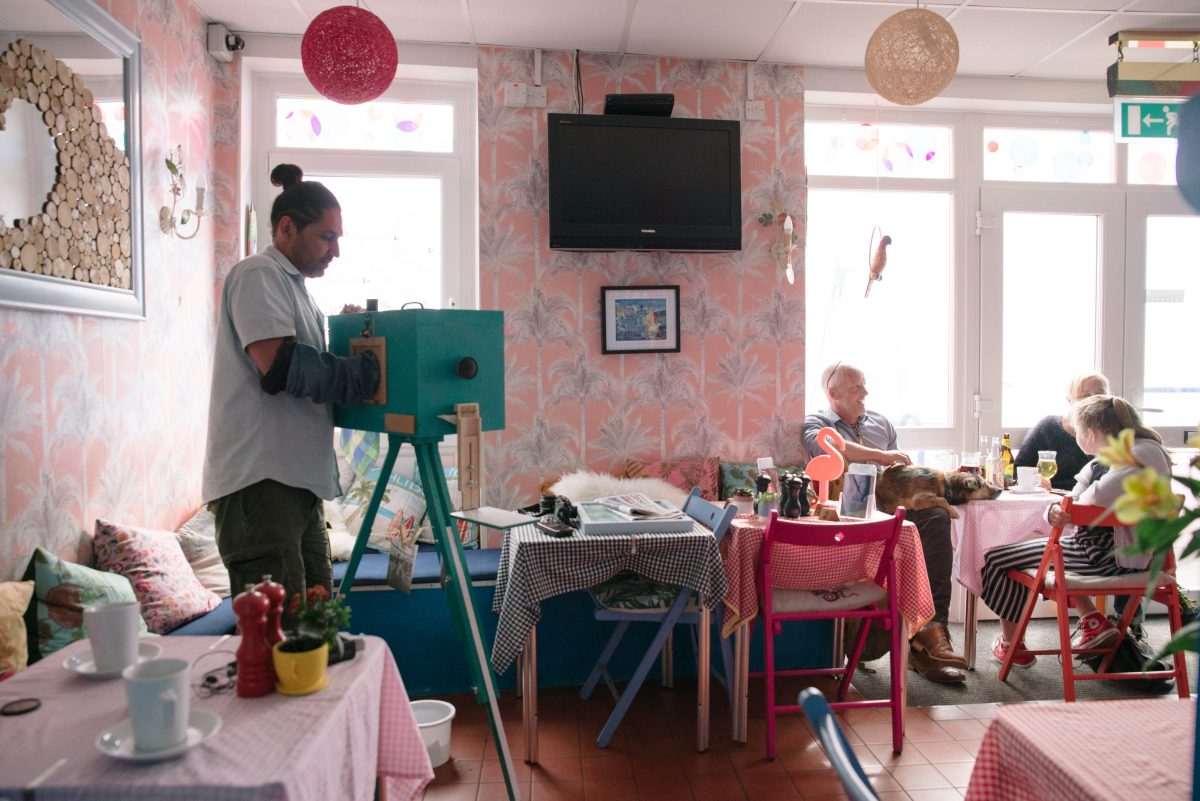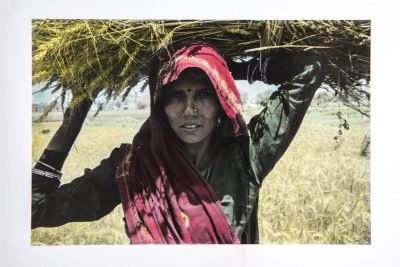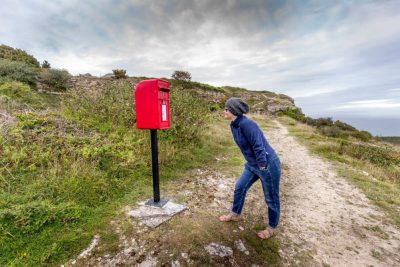
Farhad Berahman
Farhad is presenting his Afghan Camera Box project as part of the Who Are We? Programme. The Afghan Camera, or ‘kamra-e-faoree’ is still used as a traditional method of capturing memories by veteran street photographers in Afghanistan and Iran. The hand-made wooden camera acts as both the camera and darkroom, thus working as a ‘2 in 1’ machine. This enables capturing and instant printing of photographs, an individual copy handed to visitors upon processing of the image.
We live in a time where our present photography mostly operates electronically. The jpeg files are stored somewhere in the computer system, and they rarely get developed to a piece of memory that we can physically hold in our hand to gaze at. This project was originally commissioned by b-side Festival, based in Portland Island, Dorset. During Farhad’s first visit to Portland, he was intrigued by the people’s unique connection to this sparsely populated island and its historical sites, which serve as a stand-still in time. The process of taking a photograph creates a space for conversation.
In workshops, the visitors join Farhad in a hand colouring activity, a technique of treating images which date back to the early 19th century when artists started to paint over a black and white photograph in order to bring photos to life.
The production process underpinning ‘Afghan Camera Box (kamra-e-faoree)’ is captured in Marcia Chandra’s short film, Conversation: Afghan Camera Box especially commissioned for Who Are
About the artist
The Iranian photographer and artist Farhad Berahman is based in the UK. Farhad has specialised in social documentary and editorial photography in Asia and the Middle East. In 2007 he began working with the Associated Press in the UAE and Middle East. He was nominated in 2009 for a World Press Photo award for the best young talented photographer in the MENA region. Farhad’s work has been published by the BBC; AP; The New York Times; Guardian; Washington Post; Figaro and a range of other leading news agencies. He won a scholarship to study for an MA in photojournalism and documentary photography at the University of the Arts London in 2013.
He is currently the recipient of an Arts Council of England Grant for Arts award to support his current project and work. In recent years Berahman’s practice has moved from social documentary to more conceptual and sculptural work using photography.We?
Related
-
December 10, 2018
Conversation: The Afghan Camera Box – Vimeo
-
November 30, 2018
Isle of Portland: B-Side


